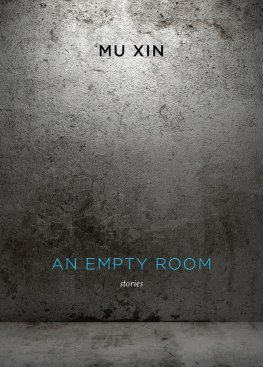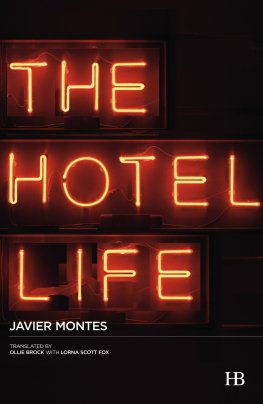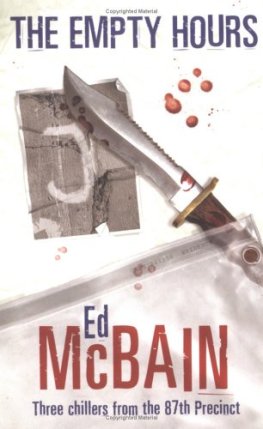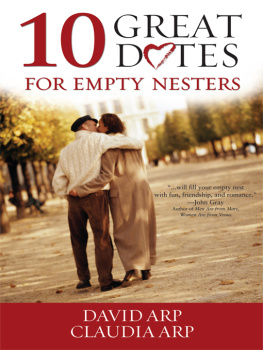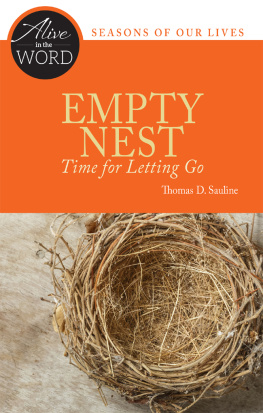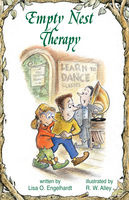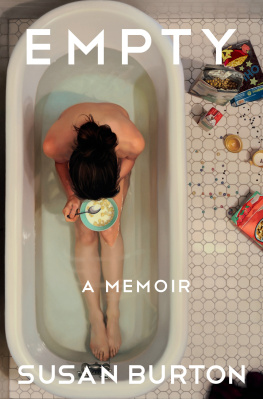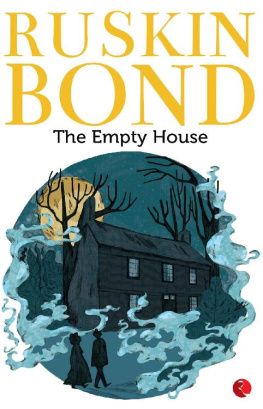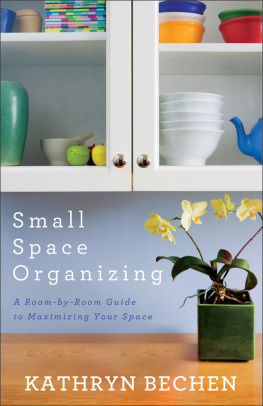Mu Xin - An Empty Room
Here you can read online Mu Xin - An Empty Room full text of the book (entire story) in english for free. Download pdf and epub, get meaning, cover and reviews about this ebook. year: 2011, publisher: New Directions, genre: Prose. Description of the work, (preface) as well as reviews are available. Best literature library LitArk.com created for fans of good reading and offers a wide selection of genres:
Romance novel
Science fiction
Adventure
Detective
Science
History
Home and family
Prose
Art
Politics
Computer
Non-fiction
Religion
Business
Children
Humor
Choose a favorite category and find really read worthwhile books. Enjoy immersion in the world of imagination, feel the emotions of the characters or learn something new for yourself, make an fascinating discovery.
An Empty Room: summary, description and annotation
We offer to read an annotation, description, summary or preface (depends on what the author of the book "An Empty Room" wrote himself). If you haven't found the necessary information about the book — write in the comments, we will try to find it.
An Empty Room — read online for free the complete book (whole text) full work
Below is the text of the book, divided by pages. System saving the place of the last page read, allows you to conveniently read the book "An Empty Room" online for free, without having to search again every time where you left off. Put a bookmark, and you can go to the page where you finished reading at any time.
Font size:
Interval:
Bookmark:
Mu Xin
An Empty Room
The Moment Childhood Vanished
if a child knows what he should know and does not know what he should not, his childhood will be very happy. But when I was a child, I did not know what I should know, and I knew what I should not, hence all kinds of bewilderments continue to follow me today.
Before I was ten years old, I already knew the nuanced differences between the seven types of Buddhist temples: si, miao, yuan, chan, guan, gong, and an. That year I followed my mother and the whole retinue of my paternal and maternal aunts to Mount Mo-An for a Buddhist service. I didnt complain when we passed a temple at the foot of the mountain or when we reached another one halfway up. But when we neared the Shizi Mian An (Sleeping Lion Nunnery) close to the peak, I asked, Is this the place?
Thats right, were here, said a porter who was carrying our luggage on a shoulder pole.
I turned to my mother. So nuns will perform the rites for us?
Oh no, she said, the leading monk here is a great master. Believe it or not, hes in charge of eighty-two temples around here.
I was even more puzzled. Then, how can he live in a nunnery? The Sleeping Lion An?
She was silent, then said softly, Well, perhaps. . perhaps they recently moved here from somewhere else.
The temple gate was plain, but once we stepped inside the grandeur expanded: after the First Mountain Pass was the Second Mountain Pass; then there was the Palace of Great Majesty, the dining hall, meditation rooms, and the guest house. Indeed it was a magnificent temple in the ancient style! With so much to explore, I soon forgot the mystery of the temples name.
My family never failed to honor the Buddha. It was for the purpose of worshipping our ancestors and burning shu-tou that my mother had decided to make this trip. As far as I could explain then, shu-tou was the written penance sent to the dead ancestors by water route and by land route, the entire rite involving an elaborate performance. Or, as I understood it, a kind of bank check with a high monetary value acceptable in the other world, an otherworldly currency for penance. People in the world of Yang supposedly paid for the benefit of the people in the world of Yin. Many monks were involved in this extravagantly observed rite of complicated procedures as if it were a grand drama acted out in sequential segments with monks reciting the scriptures and kowtowing on the ground. In the splendor sustained by bright candles, endlessly burning incense, and incessant Buddhist music and chants, the service continued for seven times seven days and nights in order for the prayers to be completed in a formal fashion.
For a child, it was a curious spectacle to observe at first. But after seven days I grew weary. There was only so much to see on the mountain, and I only had to look at the Buddhist vegetarian meals to feel repulsed. I even got tired of teasing a crazy monk who was locked up in a cave behind the temple. So I sighed deeply, thinking how very difficult it was to release your dead ancestors.
I pestered my mother about going home every day until she replied, Soon, soon. Well go home the day after we receive shu-tou.
That day was finally about to arrive. I was giddy at the thought of eating regular food, kicking balls, flying kites. At the same time I worried about the instructions I had received from a hunchbacked monk. He had told me that I would kneel in the Palace tomorrow, carrying a wooden plate. He said that my hands should be extraordinarily clean and I should quietly hold the plate while waiting for the head monk to finish his shu-tou chant. Out of frustration I asked, How long do I have to kneel?
About as long as it takes for someone to smoke a cigarette.
What brand of cigarette?
Something like Golden Mouse or Beauty.
I felt better, relieved that it wouldnt take as long as the burning of an incense stick at the altar. I even laughed, imagining the hunchbacked monk hiding in a room and smoking a Golden Mouse or Beauty.
The receiving of shu-tou came and went. It didnt seem to take as long as smoking a cigarette, but I itched all over while I kneeled, holding the redwood plate while monks robes and temple flags surrounded me. I felt it a great injustice that I should be suffering for ancestors whom I had never known. Still, the recitation of a monk standing to my right piqued my interest: . . aai. . the twenty four altitudes. . aai. . in the Clear Breeze Village of the. . aai Phoenix Tree and Mulberry County in the. . aai Luck River Province in the Capital. . aai. . of the King of the Under. . ai-hi-yi-ai. . world, ai-hi. .
I was amused. So on the large folded yellow paper called shu-tou was written an address? But what could he mean by the twenty-four altitudes? Was it where shu-tou was sent to or sent from? Was there really an underworld? Was the underworld also measured by altitudes? As I considered these strange thoughts it was over before I knew it. I felt relieved to stand and straighten my back. As soon as I received shu-tou in a large envelope with a large seal on it, I rushed over to my mother.
There is an address on shu-tou. Its the twenty-four altitudes in the Clear Breeze Village of the Phoenix Tree and Mulberry County in the Luck River Province. And its addressed to the King of the Underworld, I told her with pride.
My aunts stood around my mother, not letting their opportunity to tease me slip by.
Aha! A ten-year-old can understand a monk reading scripture. Who knows what lies in store for him in the future!
At least hell be the favored disciple of a great scholar.
Well, it seems hell enter the world of Dao and be in charge of eighty-two temples.
My mother said with a smile, He should at least know the difference between a village, a county, and a province. Otherwise how can he find his way home?
I had not meant to show off and felt their teasing was unjust. After all, I knew not only the difference between a village, county, and province I could also name seven different types of temples.
It was time to go home!
Porters carried our luggage on their backs or with shoulder poles. My female relatives were dressed in bright red and green and draped with lustrous jewelry. I followed everyone out of the gate. Taking a last glance back, I once again saw the lintel inscribed with those words: Sleeping Lion An. How could monks live in this place meant for nuns? Such a temple shouldnt be so big. And why didnt my family ask even a single question?
Our family teacher was an erudite scholar who had passed the imperial exam of the Manchu Dynasty with high honors. I was a piece of stone too hard to be carved into any desired shape. As he taught me, I would nod just to make the days go by. It wasnt that I couldnt memorize books or write poetic couplets. It was that I always wanted to read books that were classified as inferior. In those years, especially in my family, forbidden books covered such a wide range of writings that even Tang and Song poems were excluded they were simply not for someone your age. Precisely for that reason, I particularly enjoyed the sound and sense of two lines of Li Bai from a collection of annotated poetry, which read: When rain stops the sky clears / Where clouds open colors merge. One day I was staring at a pale pottery vase on my teachers desk and somehow murmured these two lines. My teacher heard and scolded me: Where did you learn that? Remember, sentimental poems weaken your will! Frustrated, I suddenly felt that in his dark study the rain would never stop and the sky would never clear. I dipped my middle finger in water and wrote the word escape, though I had no strategy as to how to accomplish this. All I could do was watch the character dry up. A sour vindication filled my heart.
Font size:
Interval:
Bookmark:
Similar books «An Empty Room»
Look at similar books to An Empty Room. We have selected literature similar in name and meaning in the hope of providing readers with more options to find new, interesting, not yet read works.
Discussion, reviews of the book An Empty Room and just readers' own opinions. Leave your comments, write what you think about the work, its meaning or the main characters. Specify what exactly you liked and what you didn't like, and why you think so.

